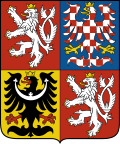The Liberal Party of Andorra is a liberal and conservative-liberal political party in Andorra. It is a member of the Liberal International and the Alliance of Liberals and Democrats for Europe.
The Freedom Union–Democratic Union was a small, pro-european liberal party in the Czech Republic from 1998 to 2011.
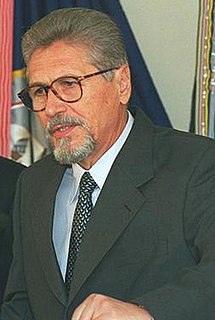
General elections were held in Romania on 3 November 1996, with a second round of the presidential election on 17 November. Whilst incumbent President Ion Iliescu of the Social Democracy Party of Romania received the most votes in the first round, he was defeated by Emil Constantinescu of the Romanian Democratic Convention in the second round.

The Liberal Party of Macedonia is a liberal party in North Macedonia. The party is a member of the Alliance of Liberals and Democrats for Europe Party, and is currently led by Ivon Velickovski.
The Democratic Party is a center-right party in Bulgaria led by Alexander Pramatarski. The party is a member of the European People's Party (EPP).

Parliamentary elections were held in Macedonia on 18 October 1998, with a second round on 1 November. VMRO-DPMNE emerged as the largest party, winning 49 of the 120 seats, and later formed a coalition government with Democratic Alternative and the Democratic Party of Albanians.

Parliamentary elections were held in Hungary on 10 May 1998, with a second round of voting in 175 of the 176 single member constituencies on 24 May.
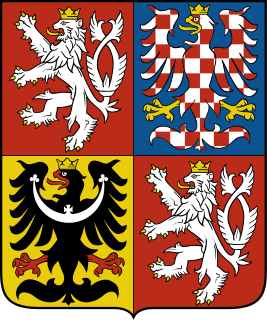
Senate elections were held in the Czech Republic on 20 and 21 October 2006, with a second round on 27 and 28 October. The result was a victory for the Civic Democratic Party, which won 41 of the 81 seats. Voter turnout was 38.2% in the first round and just 20.7% in the second.
Parliamentary elections were held in Bulgaria on 18 December 1994. The Democratic Left, the core of which was the Bulgarian Socialist Party, won 125 of the 240 seats, enough to govern without the support of parties from outside the coalition. Voter turnout was 75.3%. Following the election, Socialist Party leader Zhan Videnov became Prime Minister.

Parliamentary elections were held in Lithuania in two stages on 20 October and 10 November 1996. All 141 seats in the Seimas were up for election; 70 based on proportional party lists and 71 in single member constituencies. Where no candidate gained more than 50% of the vote on 20 October, a run-off was held on 10 November.
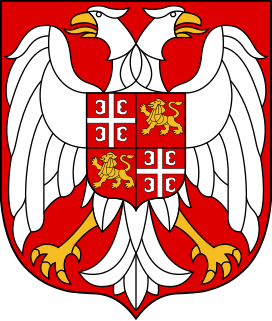
Parliamentary elections were held in the Federal Republic of Yugoslavia on 3 November 1996. A coalition of the Socialist Party of Serbia, the Yugoslav Left and New Democracy emerged as the largest bloc in the Federal Parliament, winning 64 of the 138 seats. Radoje Kontić, member of the Montenegrin ruling party, the Democratic Party of Socialists of Montenegro, was confirmed as Prime Minister of the Federal Republic of Yugoslavia. He was replaced, in 1998, by Momir Bulatović, leader of Socialist People's Party of Montenegro.

General elections were held in Bosnia and Herzegovina on 12 and 13 September 1998. The elections for the House of Representatives elections were divided into two; one for the Federation of Bosnia and Herzegovina and one for Republika Srpska. In the presidential election, each of the three national communities elected a President. Bosniaks re-elected Alija Izetbegović, Croats elected Ante Jelavić and Serbs elected Živko Radišić. The Coalition for Unity and Democracy, an alliance of the Party of Democratic Action, the Party for Bosnia and Herzegovina, the Liberal Party and the Civic Democratic Party, emerged as the largest party in the House of Representatives, winning 17 of the 42 seats.

Senate elections were held in the Czech Republic for the first time on 15 and 16 November 1996, with a second round on 22 and 23 November. the first after independence. The result was a victory for the Civic Democratic Party, which won 32 of the 81 seats. Voter turnout was 34.9% in the first round and 30.6% in the second.

Senate elections were held in the Czech Republic on 12 November 2000, with a second round on 19 November. The result was a victory for the Civic Democratic Party, which won 22 of the 81 seats. Voter turnout was 33.4% in the first round and 21.5% in the second.
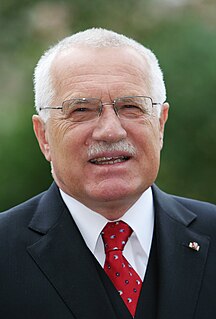
Senate elections were held in the Czech Republic on 25 and 26 October 2002, with a second round on 1 and 2 November. Voter turnout was just 24.1% in the first round and 31.7% in the second.

Senate elections were held in the Czech Republic on 5 and 6 November 2004, with a second round on 12 and 13 November. The result was a victory for the Civic Democratic Party, which won 37 of the 81 seats. Voter turnout was 28.6% in the first round and just 18.4% in the second.

Parliamentary elections were held in Hungary on 25 and 26 January 1920. However, they were only held in 164 districts. After the Treaty of Trianon was signed, the 44 districts previously occupied by Romania voted between 13 June and 5 July, whilst the 11 districts occupied by Serbia did not vote until 30 and 31 October 1921. The election was held with compulsory voting. In protest at this and other changes to the franchise that left 60% of the voting age population unable to vote, the Hungarian Social Democratic Party boycotted the elections, and called for its supporters to cast invalid votes, resulting in an unusually high number of blank or invalid votes - 11.8% in the January elections and over 20% in Budapest and other major cities.

General elections were held in Macedonia on 16 October 1994 to elect a President and Assembly, with a second round of Assembly elections on 30 October. The presidential election was won by Kiro Gligorov of the Alliance for Macedonia, whilst the parties forming Alliance for Macedonia also won the Assembly elections with 95 of the 120 seats. However, the second round of the Assembly elections were boycotted by VMRO-DPMNE and the Democratic Party, as they claimed there had been irregularities in the first round.

General elections were held in Romania in July 1932. The Chamber of Deputies was elected on 17 July, whilst the Senate was elected in three stages on 20, 24 and 26 July. The result was a victory for the National Peasants' Party-German Party alliance, which won 274 of the 387 seats in the Chamber of Deputies and 104 of the 113 seats in the Senate elected through universal male vote. Of the 274 Chamber seats, 265 were taken by the National Peasant's Party and nine by the German Party.

The Social Democratic Alliance of Moldova was a political party in Moldova.
